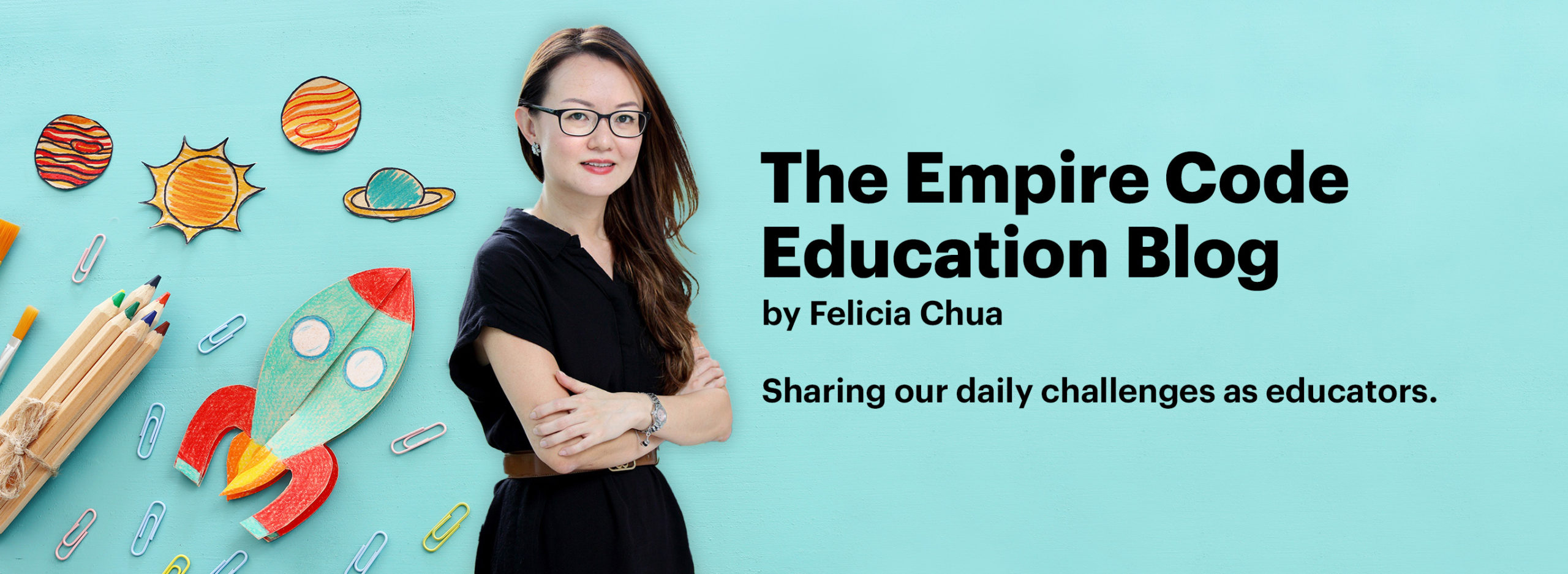With the world becoming increasingly digitized, this has made coding one of the essential skills of the 21st century. As a result, parents have started introducing coding, robotics and STEM activities for students from as young as 3.

You may also have heard of the term “DSA” (Direct Schools Admissions), through schools or fellow parents. As more students develop an interest for Computer Science from a younger age, there are now options to apply to preferred secondary schools via technology-related talent areas including coding, robotics, innovation, electronics, STEM and much more. Such schools aim to nurture an environment for such students to grow their talent and interest through weekly training, and representation of their schools in national or international competitions.
How do I prepare my child for a DSA application?
There are 3 key requirements schools will look for in an application, namely: good competition experience, a personalized portfolio, and a well-prepared interview. These are all important external key areas that will definitely affect the success of your child’s DSA application. However, beyond the documents that you need to submit, I would like to share three essential criteria that you will need to consider before you decide to apply through the DSA route.
1. Interest/Passion
DSA is a program that aims to recognise students with not just talent, but also a strong interest in a specific area that will be developed through the school’s programs. Some schools even curate CCAs specifically for DSA students. Thus, the most important factor to consider is your child’s passion and level of interest in an area. Whether it be coding or robotics, successful DSA students share the same traits: they are passionate, ambitious and independent learners with a curious mind.
Here are some questions to think about before committing your child to a DSA program:
1. Is my child consistently motivated to come for class, or does he/she find ways to avoid coming to class?
2. Does my child show enthusiasm to practice his/her codes at home?
3. Is my child excited about the learning process, and out of curiosity, create his/her own apps or programs at home?
If a child is accepted through DSA for a certain talent track, there is a rather high level of commitment to undertake to the school; Therefore, it is important to have an open discussion with your child regarding their interests and area of pursuit. At day’s end, we want the children to find purpose and success in the DSA area they are keen to apply for.
2. Attitude
The mindset of the child is one of the most important characteristics that DSA schools look out for in their pool of applicants. As much as DSA schools are looking for talented individuals with sky high grades or amazing portfolios, they also look at whether your child has good character, is a team player, and has the willingness to learn.
While medals and certificates can be reflectors of success; A key indicator of “success” is also reflected in their attitude, level of perseverance, and their progress in an area overtime. Perhaps, they have made a statement such as, “I managed to do this today, I want to continue and try that next.” This is a sign that the child finds meaning in the activity and is motivated to take this further.” – Mr Chia, Cedar Girls’ Secondary School (DSA Social Innovation)
This will be shown in their assessments or interviews. Some schools will ask a group of applicants to work together in a team to discuss a certain topic, or create a certain robot according to the problem statement provided. The panelists will then be able to gauge your child’s level of perseverance, their capacity to work in a team, alongside important attributes such as logical & critical thinking skills- factors necessary for a successful DSA application.
3. Aptitude
It is important to note that DSA is a very competitive program, with only 10% of DSA students getting their preferred slot through DSA for the past few years. The number of DSA students are also predicted to increase in the upcoming years. The secondary schools will choose the best students, whom they feel will represent their school in the best way possible, in the respective talent areas. Thus, it is important to consider your child’s aptitude, before deciding whether they should apply for DSA.
After discussions with your child, and if you feel that he/she has the interest, attitude and aptitude for a DSA route, the Empire Code DSA team will work together with you to curate a personalized portfolio for your child’s application to the school. We are also able to provide many opportunities through projects and competitions that will give your child real-world experience and a chance to apply what they have learnt in the classroom as well. Furthermore, we aim to provide a safe space for your child to learn, develop their interest, and grow through mistakes throughout their DSA application process. Register for a free DSA consultation now at: https://empirecode.co/dsa/.
To celebrate the new school year 2023, we are pleased to offer a $50 off your first DSA Package. WhatsApp us on +65 8145 5004 for a free consultation and mention our special code DSA50!
